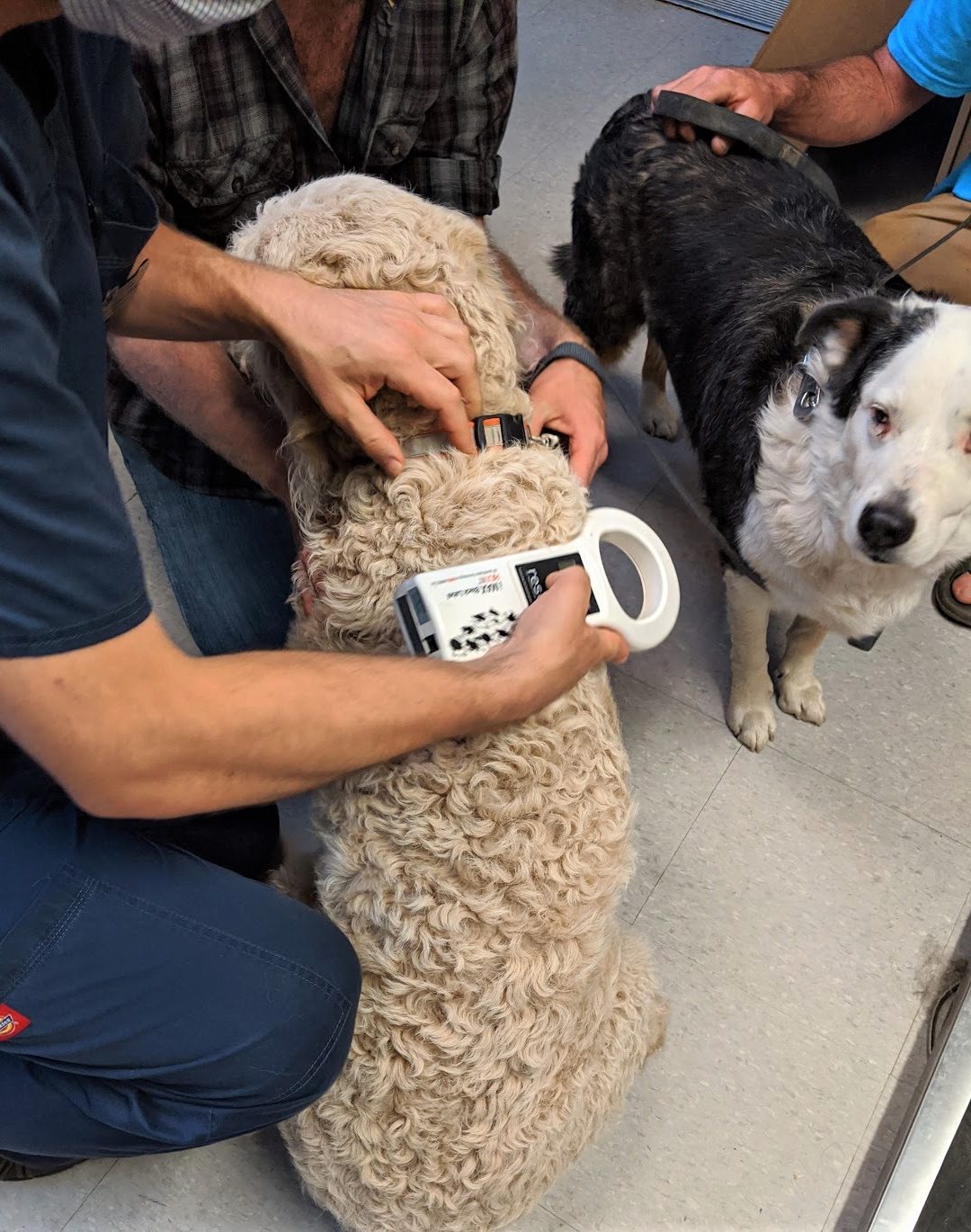June is National Microchip Month. While we never like to think of our beloved pets getting lost, it is important to have ways to identify them and contact you in the event that it happens. Microchipping your pet is a simple and permanent way to identify them and help bring them home if they go missing.
Having your pet microchipped is generally no more painful than giving them a vaccine. The microchip is implanted just under the pet’s skin and is about the size of a grain of rice. The microchip does not need a power source (such as a battery) as it is activated when read by a microchip scanner.
Microchips are not tracking devices and cannot be turned on to locate your pet. They must be scanned by a microchip scanner. Most shelters, animal rescues, and veterinary hospitals are equipped with these and have a standard procedure to scan any pets that have been found and brought to their facility to help reunite them with their owners.
Each microchip has its own unique ID number that is used to retrieve the pet owner’s contact information. The contact information is stored by the manufacturer. Each manufacturer has their own security procedures to ensure that owner information is stored safely.
Once a pet has been scanned, the unique ID number will appear on the scanner. There is not a central database that all microchips are registered to, however, the American Animal Hospital Association has launched a Universal Pet Microchip Lookup Tool: www.petmicrochiplookup.org. This provides a listing of manufacturers that the microchip’s code is associated with.
Microchips have been shown to increase the likelihood of pets being reunited with their owners. In a recent study of 7,700 stray animals, microchipped dogs were returned to their owners 52.2% of the time (compared to 21.9% of non microchipped dogs) and microchipped cats were returned 38.5% of the time (compared to 1.8% of non microchipped cats).
Once your pet has been microchipped, it is important to register the microchip and keep your contact information up-to-date with the manufacturer. You should also ask your veterinarian to scan your pet’s microchip yearly to ensure that it is functioning and can be detected.
All animals that are adopted from Roice-Hurst Humane Society are microchipped prior to adoption. Or if you are interested in microchipping your pet, make an appointment at our next Low-cost Clinic. Just make sure to keep your contact information up-to-date!

